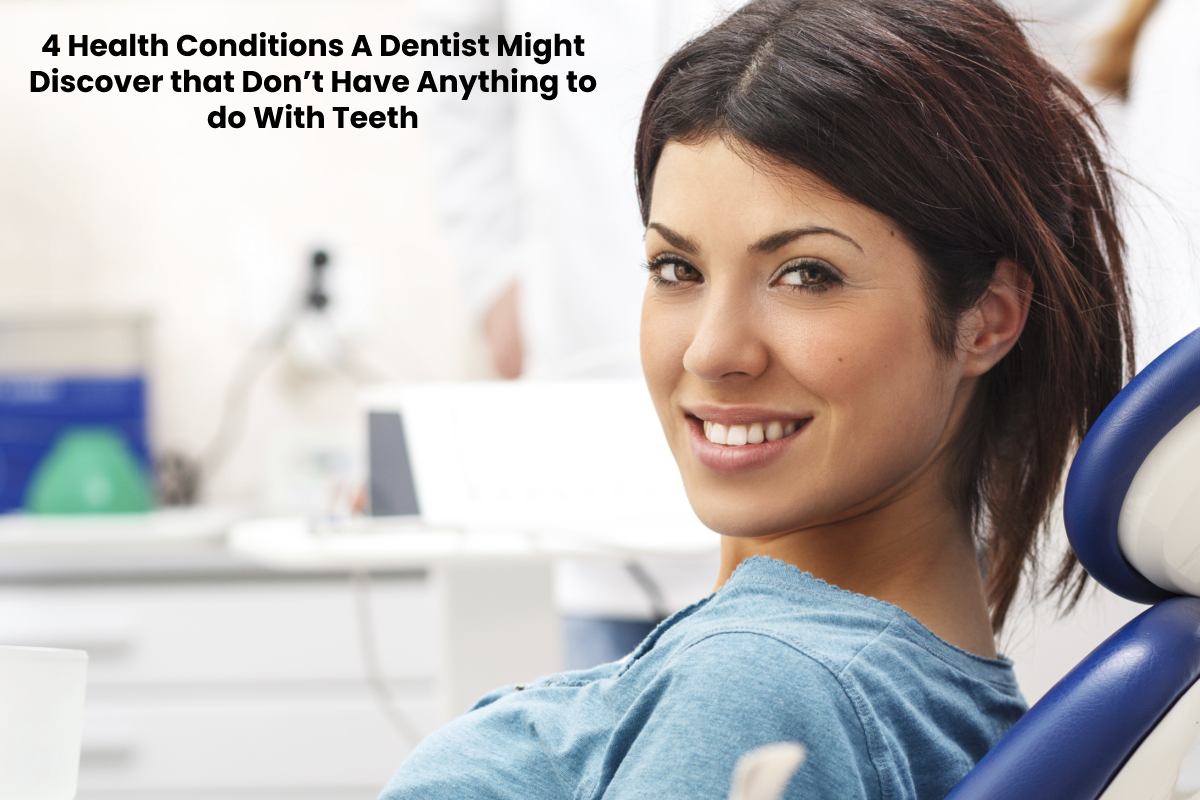When you go to the dentist, you fully expect your teeth to be the center of attention. But on occasion, a dentist will discover disease and medical health conditions that have got nothing to do with your teeth.
Even if you are conscientious about brushing after every meal, flossing every day, limiting your intake of sweets and sweet drinks, and making sure to visit your family dentist like Napa Family Dental regularly, dentists in ABQ, New Mexico, you might have no clue about a current medical condition that has nothing to do with your teeth.
According to a new report, a simple checkup visit to your family dentist might provide a quick look into your brain and heart health. It’s estimated that more than 100 diseases and medical conditions will show up in your mouth.
For example, periodontal disease, which can result from inflammation and infection in the bones and gums that surround and protect the teeth, is much more common in persons who suffer from diabetes. Also, some prescription drugs, such as those you take for hypertension, can have a direct effect on your mouth.
Says Heart.org, some dentists and oral surgeons might “pick up on red flags about a patient’s overall health” prior to their examining the mouth. Dental schools often offer courses on evaluating a patient’s overall medical health condition and health history.
With all this in mind, here are four health conditions a dentist might discover that don’t have Anything to do with your teeth.
Table of Contents
Hypertension Issues
It’s common for a dentist and/or oral surgeon to take a person’s blood pressure prior to a dental procedure that might require an anesthetic, be it local or general. Dental offices will usually ask first-time patients to fill out comprehensive medical history forms, which are to be updated on a regular basis as the patient ages.
Says an associate professor at Harvard Medical School, every time a patient has contact with a medical care provider, it’s “an opportunity for prevention.” Hypertension just happens to be one instance of a serious condition where going to the dentist can make a difference in a person’s overall health.
Because many dental clinics check a patient’s blood pressure, they can easily identify those who require the care of a separate medical professional. For persons who’ve been previously diagnosed with hypertension, the drugs they ingest can result in dry mouth, which can accelerate tooth decay issues.
Diabetes Issues
Diabetes that goes undetected and therefore untreated can result in acute medical problems down the road, including heart and cardiovascular disease. Some dental experts say high blood sugar can disrupt the “oral microbiome,” which is the family of good bacteria, microbes, and viruses that commonly reside inside your mouth. This translates into bone loss, gum disease, and extracted teeth.
Persons who perceive themselves as perfectly healthy often don’t visit their doctor. Since hypertension and diabetes can exist without obvious symptoms, the dentist might be the first to catch them (eye doctors will too).
HIV Issues
There are reports of dentists treating persons who possess lesions inside their mouth that would otherwise not appear with a properly functioning immune system. This leads dentists to believe the patient has contracted HIV.
For those with HIV, the risk of cardiovascular disease is almost twice that of people who don’t have it, or so states the American Heart Association. If you notice legions in your mouth, under your lips or tongue, you should immediately consult with your general physician or even visit the nearest medical center Emergency Room.
COVID Issues
Representatives of the UCSF School of Dentistry are said to have positively tested patients for the COVID-19 virus as soon as the pandemic started in early 2020. They performed the testing in order to protect staff, students, and fellow patients from the potentially deadly infection.
More recently, some clinics have shifted their policy to not needing testing prior to a dental procedure so long as you can show proof of vaccination and boosting. But now, in 2022, there is some doubt that the vaccinations and boosters are as effective as once believed.
COVID-19 can potentially have a debilitating effect on both the brain and the heart, researchers have found. Those who already suffer from ailments like diabetes, high blood pressure and HIV, are more susceptible to severe complications from COVID-19, or so states the Centers for Disease Control and Prevention.
It’s important to note that while dentists can often pick up on all of these diseases that have nothing to do with your teeth, they are not a “one-stop shop for your health.”

